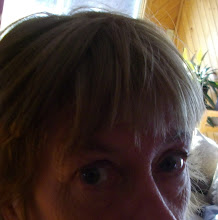The Ecstatic Faith of Rumi
~~~~
~~~~
 The 13th-century Muslim mystic and poet Rumi has long shaped Muslims around the world and has now become popular in the West. Rumi created a new language of love within the Islamic mystical tradition of Sufism. We hear his poetry as we delve into his world and listen for its echoes in our own.
The 13th-century Muslim mystic and poet Rumi has long shaped Muslims around the world and has now become popular in the West. Rumi created a new language of love within the Islamic mystical tradition of Sufism. We hear his poetry as we delve into his world and listen for its echoes in our own. Rumi's poems are best-sellers in the West and he has long influenced Islamic thought and spirituality, though his Muslim identity is often lost in translation. With an Iranian-American poet and scholar, we'll explore why that matters in our time. And we'll hear the lyrical words Rumi put to the common human search for meaning. He understood searching and restlessness as a kind of arrival. He saw every form of human love as a mirror of the divine.
In this episode of Being (formerly called Speaking of Faith), Krista Tippett speaks with Rumi scholar and poet Fatemeh Keshavarz. Ms. Keshavarz is chair of the Department of Asian and Near Eastern Languages and Literatures at Washington University in St. Louis. She is also a poet, and often sets Rumi's words to music. She grew up speaking the Persian in which Rumi wrote, in the Iranian city of Shiraz. Together they explore the exuberant world of Rumi and reveal the relevance of his 13th-century wisdom to the modern Western world.
I hear Rumi as a perfect voice for the spiritual longing and energy of our time. With his vigorous and challenging language of the heart, he reminds us that we need poetry as much as we need science, alongside our politics and within our diplomacy. We need passionate searching words, not just logical decisive words, to tell the whole truth about what it means to be human, and about the past, present, and future of our world.
~~~~
Out beyond ideas of wrongdoing and rightdoing,
there is a field. I'll meet you there.
When the soul lies down in that grass,
the world is too full to talk about.
Ideas, language, even the phrase each other
doesn't make any sense.
~~~~

